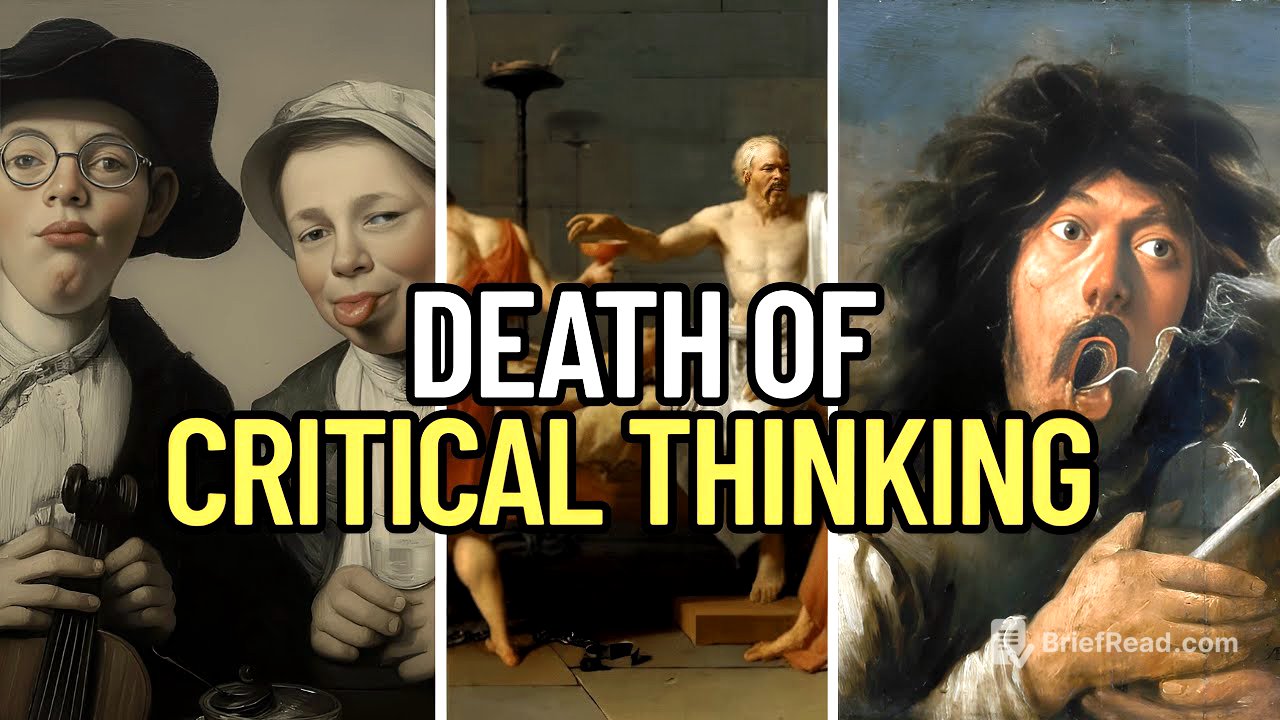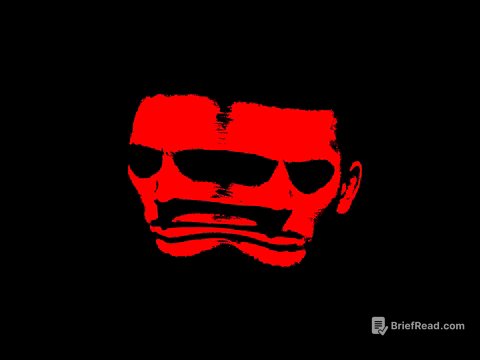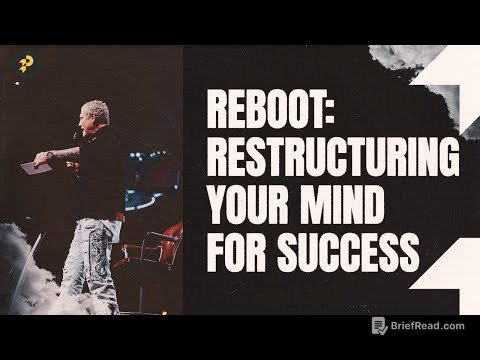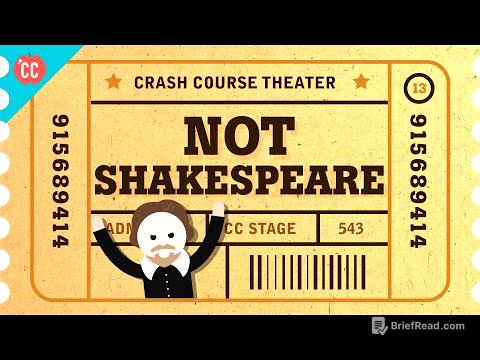TLDR;
The video discusses the decline of critical thinking in the modern age and its historical roots. It identifies information overload, echo chambers, and sensationalism as key factors contributing to this decline. The video also offers practical ways to rekindle critical thinking, such as encouraging curiosity, slowing down to think, diversifying sources, reforming education, and practicing skepticism.
- Critical thinking is essential for navigating the complexities of the modern world.
- Information overload, echo chambers, and sensationalism are major obstacles to critical thinking.
- Practical strategies can help individuals and societies revive critical thinking skills.
50 facts and idiot [0:00]
The video introduces the concept of critical thinking and its importance in an age where misinformation and collective stupidity are on the rise. It highlights the paradox that while information is readily available, the ability to think critically and discern truth is declining. The central question posed is why critical thinking is fading away and what can be done to reverse this trend.
what is critical thinking and its origin [1:00]
Critical thinking is defined as the disciplined habit of questioning assumptions, seeking evidence, and applying reason before accepting any belief. Its origins are traced back to ancient Greece, with Socrates pioneering the Socratic method of questioning to expose contradictions and weak foundations in people's knowledge. Despite facing persecution for his relentless questioning, Socrates' legacy endured, with thinkers like Plato and Aristotle building upon his framework of logic and skepticism. During the Enlightenment, philosophers like Immanuel Kant further championed critical thinking as the cornerstone of science, democracy, and innovation.
why critical thinking is dying [3:27]
The video transitions to discussing the decline of critical thinking in the modern era.
reason 1 [3:29]
One of the primary reasons for the decline of critical thinking is information overload. The abundance of readily available information, while seemingly empowering, overwhelms the human brain and forces individuals to take mental shortcuts. This constant reliance on technology to access information leads to a decline in deeper reasoning and critical analysis, as individuals become accustomed to outsourcing their intelligence to machines. The "Google effect" is mentioned, where people remember where to find information rather than the information itself, leading to mental laziness and a preference for instant headlines over complex reasoning.
reason 2 [5:59]
Echo chambers are identified as another significant factor contributing to the decline of critical thinking. Social media algorithms and online communities create environments where individuals are primarily exposed to information and opinions that confirm their existing beliefs. This leads to confirmation bias, where people accept information that aligns with their worldview and dismisses contradictory information as biased or fake. The lack of exposure to diverse perspectives and challenging viewpoints reinforces existing beliefs and stifles critical analysis.
reason 3 [8:12]
Sensationalism in modern media is presented as the third reason for the decline of critical thinking. The media's focus on drama and outrage to capture attention leads to the exaggeration of stories and the framing of issues in the most shocking way possible. This constant hype numbs individuals, making them lose patience for nuance and allowing their emotions to override logic. The 24/7 news cycle, fueled by algorithms and profit-driven clicks, exacerbates sensationalism, creating a population that is constantly anxious, distracted, and rarely thoughtful.
how to rekindle your critical thinking 5 ways [10:48]
The video offers five ways to rekindle critical thinking: encourage curiosity by asking questions and seeking evidence, slow down and think by resisting instant reactions and practicing mindfulness, diversify sources by seeking out perspectives that challenge your own, reform education and leadership by emphasizing reasoning and debate, and practice skepticism by questioning assumptions and testing knowledge. These strategies aim to counteract the negative effects of information overload, echo chambers, and sensationalism, and promote a culture of critical inquiry and rational discourse.









